Huawei expansion into smartphone market has started to be reflected int their released their annual results for 2015 last week. By going through their press release library and annual reports I have tried to piece together a picture of their consumer business and how it has grown over time.
Huawei isn’t like other businesses you might be used to in terms of corporate structure. It is based around worker participation in profits with Chinese colleagues benefiting from profit share. It is a private company so it’s numbers don’t have the same level of disclosure requirements as public companies. It’s books are audited by a reputable accounting firm.
I found some inconsistencies in the way information is disclosed. For a number of years Huawei used to quote US dollar equivalents to its numbers, but has stopped doing so in the 2015 report.
Other inconsistencies:
- High-end device sales are only listed for the past three years as the company started to focus on the premium marketplace
- Honor sub-brand device shipments were disclosed for 2014 and 2015 as the brand filled the low-to-mid market segments Huawei’s range had previously extended down to
- I only have two years worth of revenue numbers from Western Europe, if I get more I can then start looking at trends over time
- In 2014, they disclosed the proportion of sales from e-commerce and the number of Huawei branded stores. In 2015, they disclosed the total number of retail outlets worldwide that sold Huawei phones
Between the currency fluctuations and the slight changes in information there may be some errors in my numbers – please bare this in mind.
I have outlined my charts below as JPEGs and have embedded a presentation at the bottom for convenience.
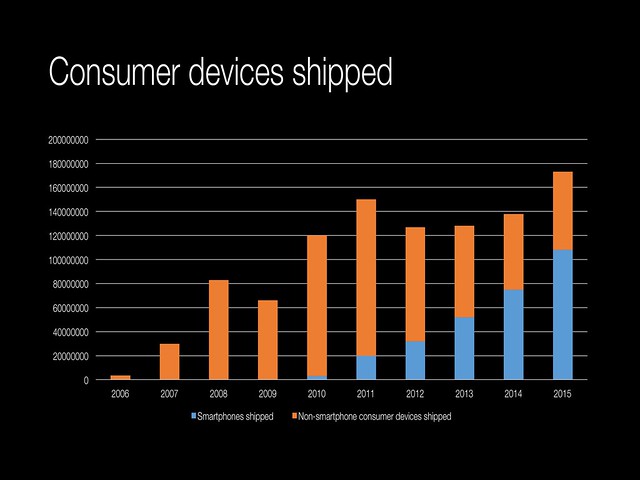
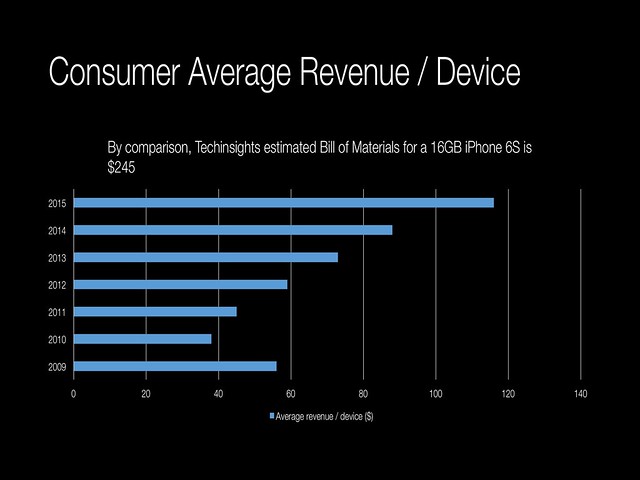
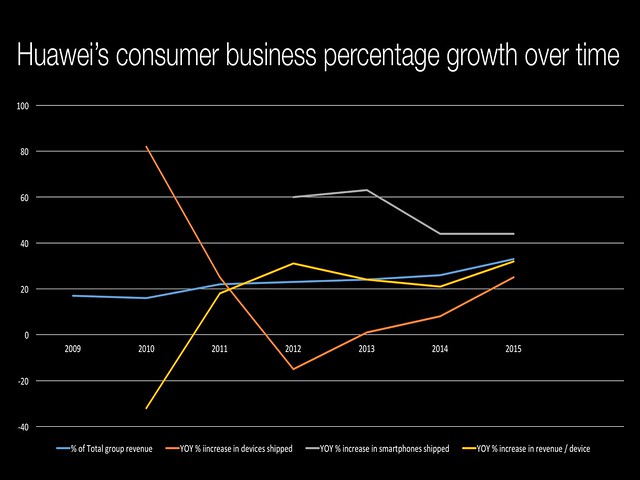
What does 2016 and beyond bring?
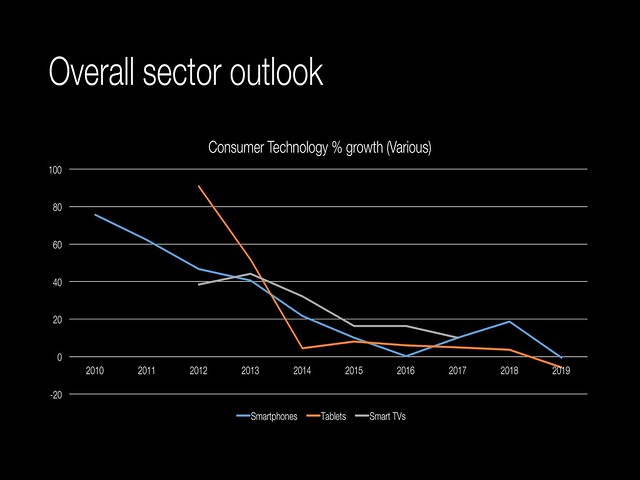
Looking at forecasts from market analysts and The World Bank Huawei will experience tougher market conditions with lower growth forecast across major markets like China. Smartphone market maturity will mean lower exceptions of sector growth as well.
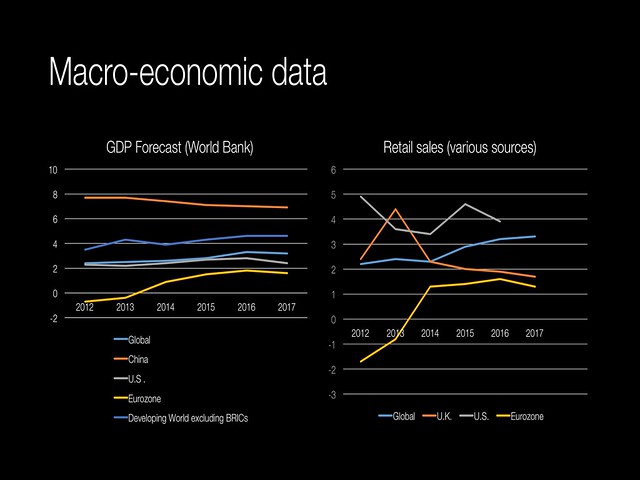
As a presentation